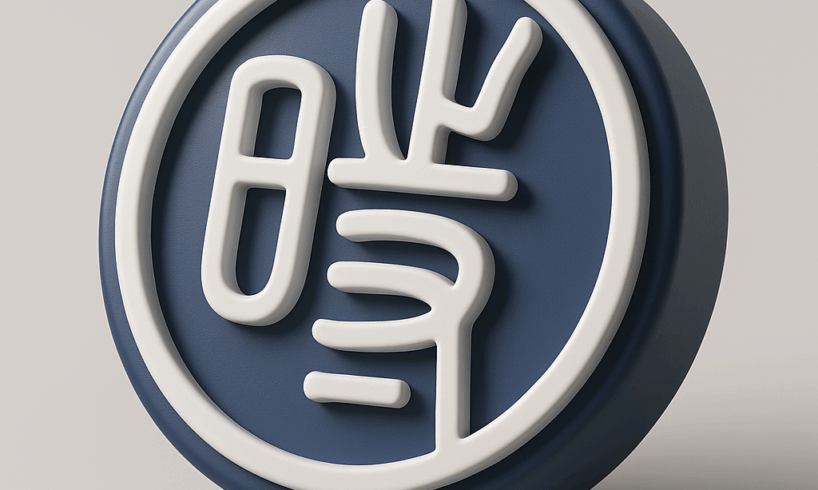
Last month, a Chinese man attacked a Japanese woman and her child in a subway station in Suzhou, sending her to the hospital for treatment. Media reports about the attack were censored on WeChat. The Japanese government called on Chinese authorities to “punish the suspect, prevent similar incidents and ensure the safety of Japanese nationals.” As some Chinese commentators wrote online, the attacks underscore the persistence of xenophobia in China, inflamed by intensifying Party-driven nationalistic propaganda campaigns commemorating the 80th anniversary of the end of the “Chinese People’s War of Resistance Against Japanese Aggression.” (Over the weekend in Beijing, over 22,000 people took part in a rehearsal of a military parade, scheduled for September 3, to commemorate the end of the war.)
The attack is the latest in a growing list of violent anti-Japanese incidents in Suzhou. In September 2024, a Chinese man fatally stabbed a 10-year-old Japanese boy near a Japanese school in Suzhou. The incident occurred on the anniversary of the 1931 Mukden incident, known in China as a day of national humiliation. Dozens of essays by Chinese bloggers reflecting on the child’s murder were deleted by platform censors. Just months earlier in the same city, a Chinese man injured a Japanese woman and her child, and killed a Chinese bus attendant who tried to protect them. Censors deleted an online essay criticizing the lack of transparency around authorities’ prosecution of the attacker.
This follows other anti-Japanese incidents in China over the past few years. In July 2024, a Chinese man assaulted a young woman cosplayer in Gansu while yelling about a “cultural invasion” and what he described as her “Japanese clothing.” In July 2022, there was widespread celebration across Chinese social media after the assassination of Shinzo Abe, followed by a viral video of a Shandong high school skit reenacting the assassination. That same month in Suzhou, police detained a woman for five hours for wearing a kimono, searched and deleted photos on her phone, and confiscated her kimono.
After one of the Suzhou murderers was given a death sentence earlier this year, Chinese bloggers wrote about whether he was the product of an “information bubble” filled with toxic, xenophobic, nationalistic content, and argued that expedited punishment for these sort of attackers prevents wider discussion of the socio-economic issues that contributed to their crimes. In reaction to the latest attack, WeChat blogger 星之继承者 (Xīng zhī Jìchéngzhě, “Heir to the Stars”) wrote that these anti-Japanese attacks are a pattern and not a coincidence, and decried the normalization of such violence, and the silent complicity of the general public:
You think it’s just a few people hating Japan, but I see it as a disease that afflicts our entire society.
[…] We are not the opposite of the Japanese right wing.
We are Chinese individuals.
Don’t use the ugly behavior of others to mask your own malice.
You can hate history, but you can’t force an [innocent Japanese] mother to carry the burden of your hatred.
[…] If you can’t even ensure that a foreign mother and child can ride the subway in safety, how dare you claim that we’re a great nation? [Chinese]
The backdrop to these attacks is a regional debate over how these important war anniversaries will be commemorated. Last week, the Global Times criticized what it described as Japan’s instrumentalization of history, writing that “a dangerous narrative of ‘victimhood’ has taken hold in Japanese society.” Invoking its own victimhood the next day, in an opinion piece titled “War-themed movies teach important lessons,” China Daily argued that “people in countries victimized by Japanese aggressors doubt whether the country has really severed itself from its militaristic past” and accused the Japanese government of “still [trying] to whitewash the country’s past crimes.” In order to teach these lessons, Chinese state-media officials have announced that nearly 100 films, TV dramas, documentaries, and micro dramas related to the war will be played on national TV and online platforms from July to September.
Some of these wartime micro dramas have amassed hundreds of millions of views on platforms such as Douyin and feature such absurd plotlines and over-the-top nationalism that China’s National Radio and Television Administration had to issue a regulatory notice calling for stricter oversight amid concerns about their negative impact on viewers. Chinese news coverage of the notice even acknowledged that some of these dramas presented “revenge narratives” and could be such parodies of history that they constitute “high-level black,” or nationalist propaganda so exaggerated that it actually serves as an act of criticism.
One film that was recently released during the national propaganda campaign and heavily promoted by Chinese state media is “Dead to Rights” (南京照相馆). The film portrays the heroism of Chinese civilians who took refuge in a photo studio during the Nanjing Massacre and documented crimes of the Japanese army. Its director, Shen Ao, said last Thursday at a State Council press conference on the future of Chinese cinema that “[f]ilm is not merely entertainment but a vessel for promoting social values.” In a now-censored WeChat article, commentator Ni Ren (倪刃) warned about the toxic anti-Japanese effect of forcing Chinese nationalism through film, and asked, “Do we still have the right to criticize ‘Dead to Rights?’”:
I saw some people online, like me, nervously criticizing the film for not being well made, and immediately they were attacked by netizens calling them “traitors.”
When you analyze the actual quality of the film itself, they’ll say: “Does it really matter whether it’s good or bad? Isn’t the most important thing to show people how bad the Japanese are?”
[…] I even heard about some kids who went home and destroyed all their manga and anime merchandise after watching “Dead to Rights.” Is this really the outcome we want?
Will destroying Japanese manga and anime swag somehow give Chinese comics and animation a boost? Will sowing hatred somehow make us better people?
[…Since seeing the film,] my view hasn’t changed: remembering history shouldn’t be about fueling hatred, nor should it allow grand narratives to erase our own civility and progress.
[…] Only when we learn to love the people around us will remembering history have real meaning.
Otherwise, hatred will produce nothing but savagery. [Chinese]
With additional translation from Cindy Carter.





